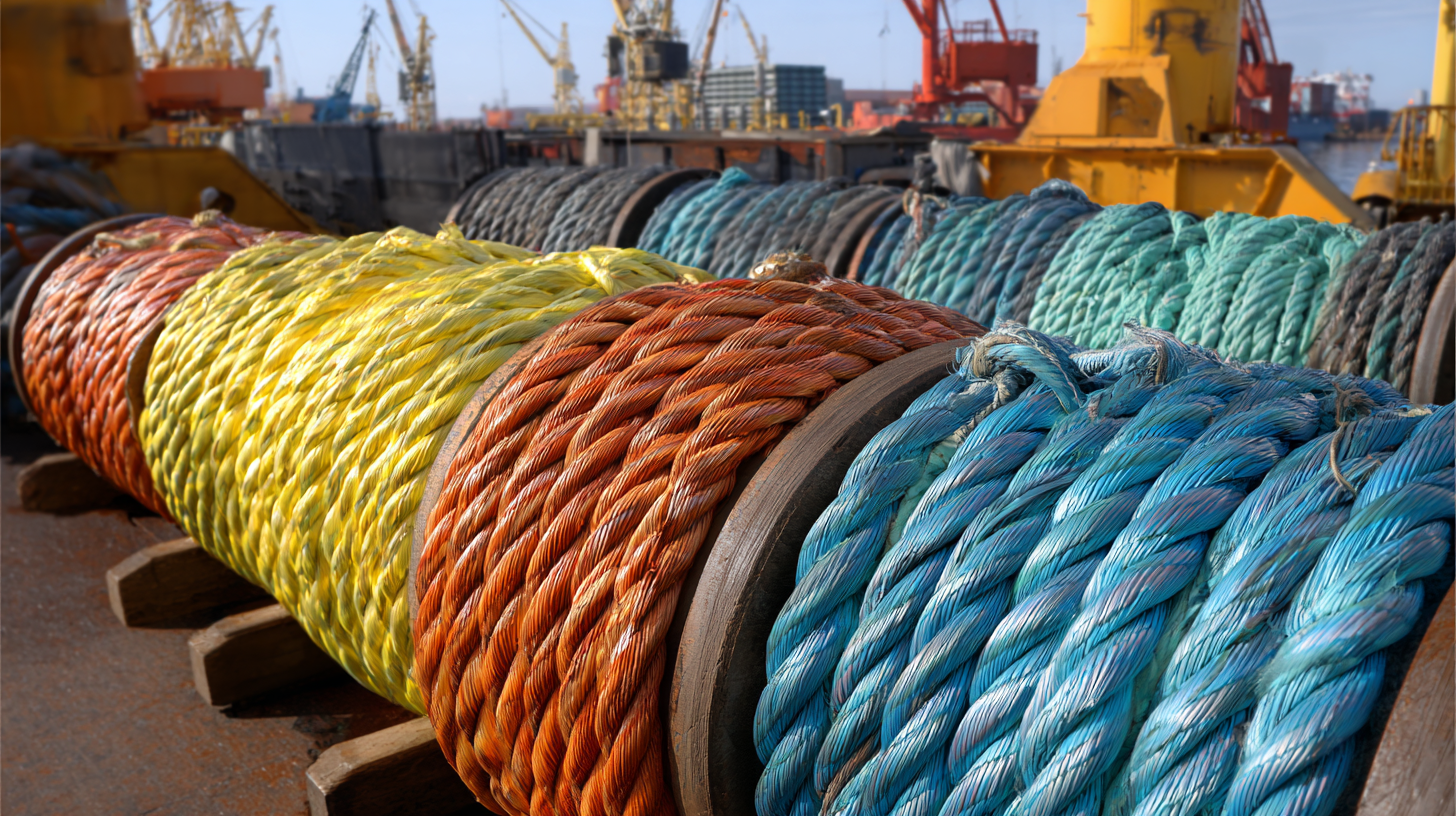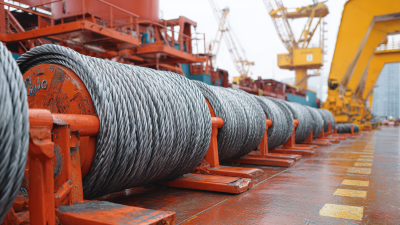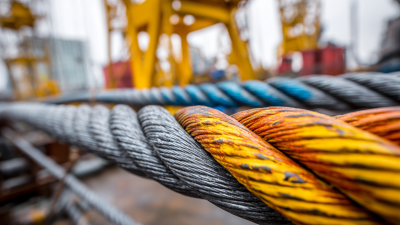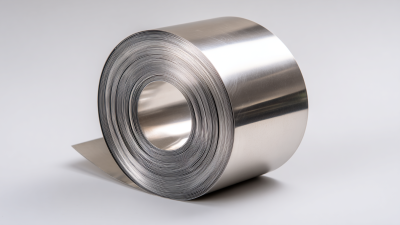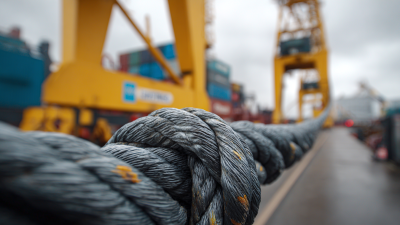
Leave Your Message

In the industrial sector, selecting the appropriate Crane Rope Suppliers is crucial for ensuring safety, efficiency, and longevity in operations involving heavy lifting and material handling. According to a report by Market Research Future, the demand for crane ropes is expected to grow at a CAGR of 5.12% over the next five years, driven by the expansion of construction and mining industries globally. The right suppliers not only provide high-quality materials that meet rigorous safety standards but also offer technical expertise and support in selecting the best products for specific applications. Furthermore, the global crane rope market is projected to reach approximately $500 million by 2027, highlighting the increasing reliance on specialized suppliers to meet the evolving demands of various industries. Therefore, understanding the characteristics and offerings of potential Crane Rope Suppliers is essential for companies aiming to enhance their operational capabilities while maintaining safety and efficiency.
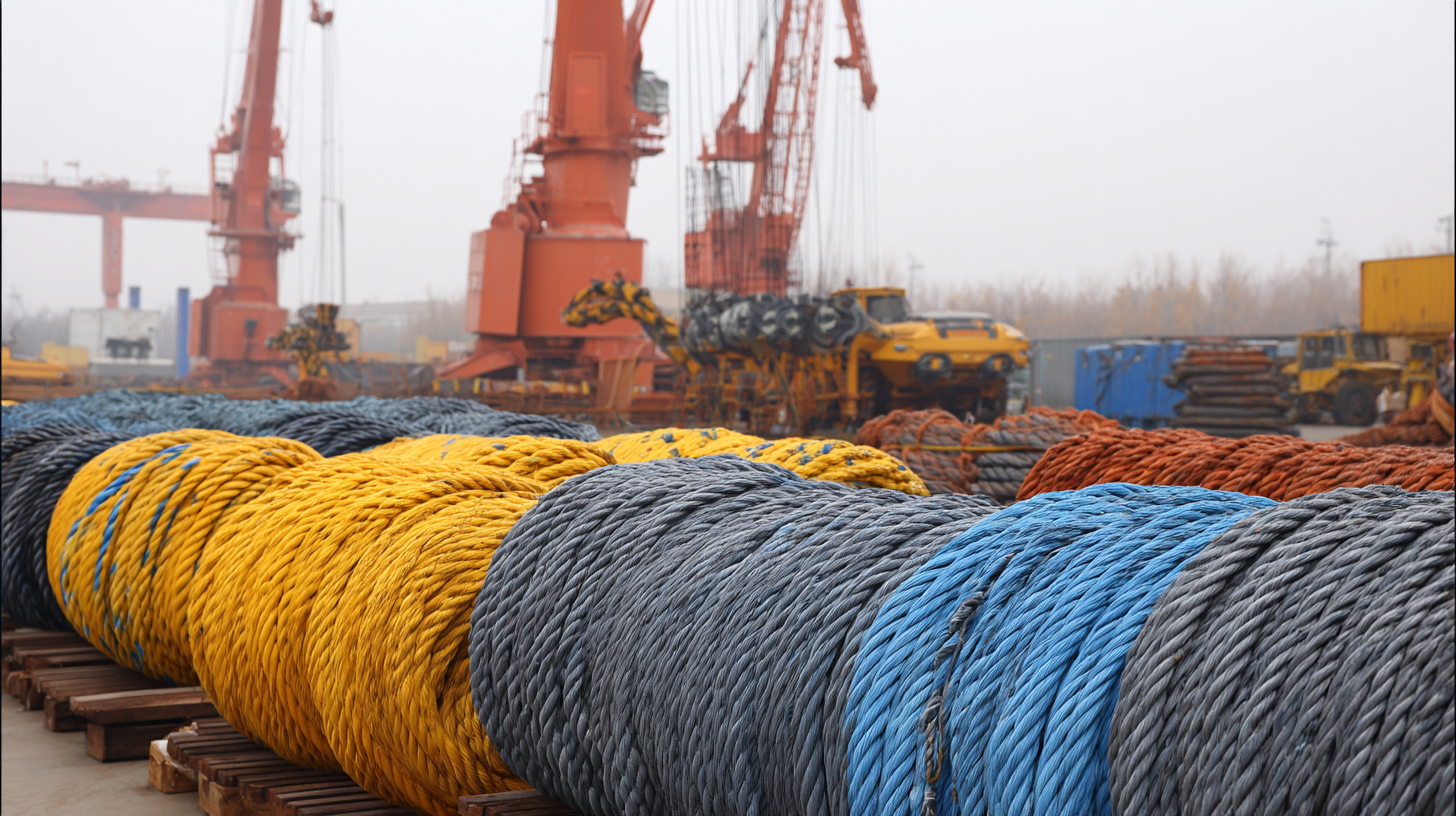
When it comes to selecting the right crane rope suppliers for your industrial needs, it's important to consider several key criteria. First, ensure that the supplier has a proven track record in the industry. According to recent reports, over 70% of construction accidents are linked to equipment failure, which stresses the need for high-quality materials and reliable suppliers. Reviewing customer testimonials and case studies can provide valuable insights into a supplier’s reliability and product durability.
Additionally, an understanding of current trends in crane technology, particularly in automation, is crucial. As highlighted in recent industry studies, tower crane automation has advanced significantly over the past two decades, contributing to increased efficiency and safety on construction sites. Suppliers who stay abreast of these technological advancements and are capable of integrating automated systems into their operations can provide a competitive edge. Notably, a survey indicated that companies using automated cranes report a 30% increase in productivity. Therefore, selecting suppliers who align with these advancements ensures you invest in the latest, most efficient crane rope solutions available.
This bar chart illustrates the key criteria for selecting crane rope suppliers based on their importance for industrial needs.
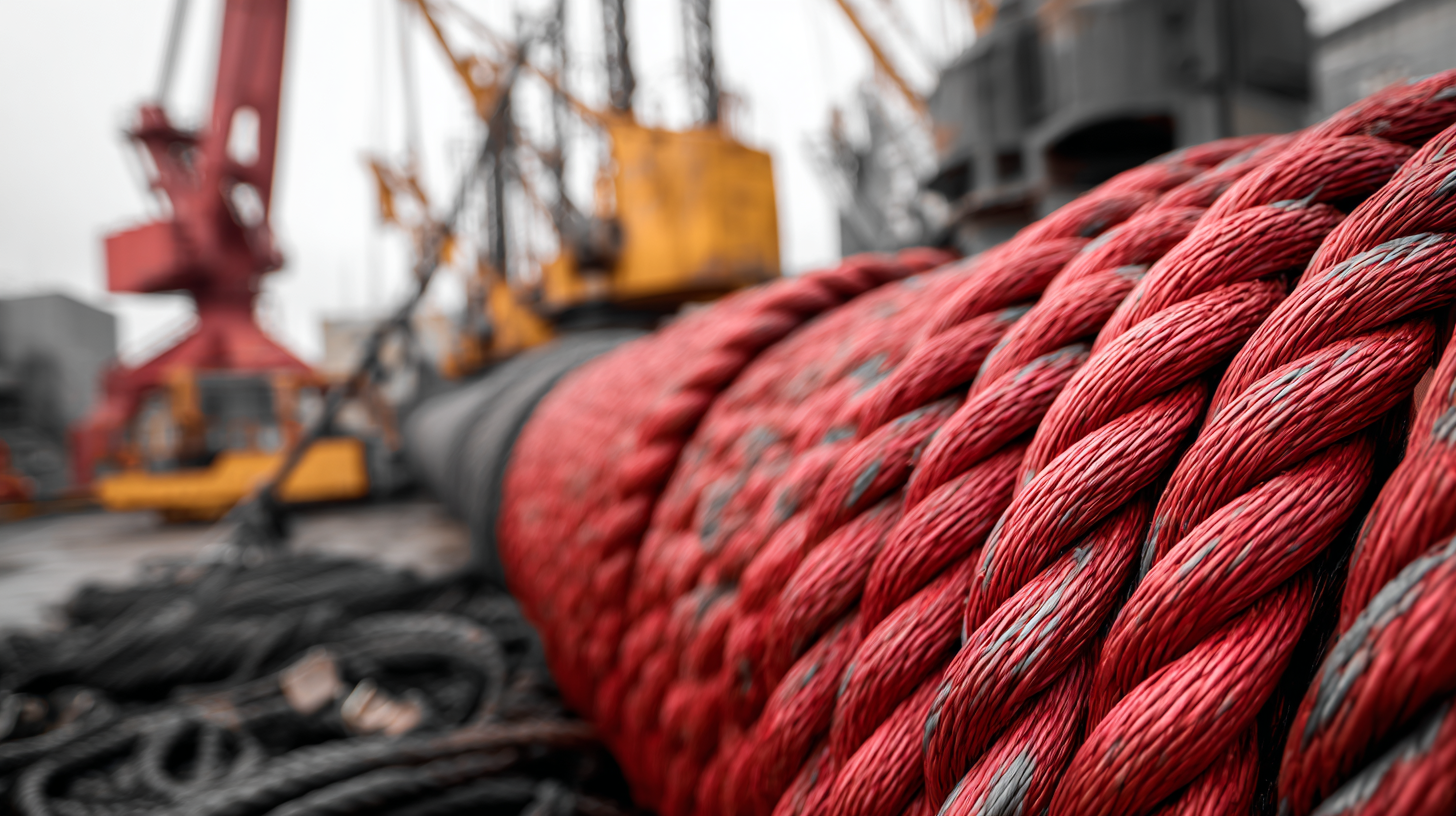 When choosing crane rope suppliers, evaluating their experience and reputation is paramount to ensuring operational efficiency and safety in industrial applications. Suppliers with a proven track record in the industry are often better poised to meet the specific demands of crane operations. By examining case studies and procurement managers’ experiences, organizations can gain insights into the reliability and durability of different suppliers’ products. A qualitative analysis of supplier development challenges reveals that established suppliers typically possess superior knowledge and adaptive strategies, which are crucial during supply chain disruptions.
When choosing crane rope suppliers, evaluating their experience and reputation is paramount to ensuring operational efficiency and safety in industrial applications. Suppliers with a proven track record in the industry are often better poised to meet the specific demands of crane operations. By examining case studies and procurement managers’ experiences, organizations can gain insights into the reliability and durability of different suppliers’ products. A qualitative analysis of supplier development challenges reveals that established suppliers typically possess superior knowledge and adaptive strategies, which are crucial during supply chain disruptions.
In the era of Industry 4.0 transitioning to Industry 6.0, the integration of artificial intelligence in supply chain management can enhance supplier evaluation processes. Advanced technologies can facilitate precise assessments of supplier credibility, leveraging data analytics to provide a clearer picture of a supplier's past performance and industry standing. Furthermore, adopting fuzzy logic-based evaluation models can improve trustworthiness assessments, allowing companies to make informed decisions when contracting suppliers for essential components like crane ropes. By prioritizing suppliers with significant experience and a solid reputation, businesses can mitigate risks and enhance their operational effectiveness.
When selecting crane rope suppliers for industrial applications, the quality and durability of the materials used are paramount. Crane ropes are typically made from steel and synthetic fibers, each offering distinct advantages and disadvantages. According to industry reports, steel ropes provide superior strength and resistance to wear, making them essential for heavy lifting tasks. However, they can be prone to corrosion, especially in harsh environments. On the other hand, synthetic ropes are lightweight and have high energy absorption rates, which can enhance safety by reducing the risk of snapping under heavy load.
The durability of crane ropes can significantly affect safety and efficiency in industrial operations. For instance, a study by a leading safety organization indicated that using high-quality materials can extend the lifespan of crane ropes by up to 50%, which ultimately reduces replacement costs and downtime. Additionally, maintaining proper tensile strength is crucial; ropes with inadequate strength can lead to operational failures. Therefore, when comparing suppliers, it’s essential to evaluate the specific materials they offer, ensuring they meet the necessary industry standards for safety and performance.
| Supplier Type | Material Quality | Durability (Years) | Weight Capacity (Tonnes) | Corrosion Resistance |
|---|---|---|---|---|
| Steel Rope Supplier | High Tensile Strength | 10 | 15 | Moderate |
| Synthetic Rope Supplier | Lightweight, Flexible | 5 | 10 | High |
| Wire Rope Supplier | Galvanized Steel | 8 | 12 | Moderate |
| Specialty Rope Supplier | Hybrid Material | 6 | 20 | Very High |
When selecting crane rope suppliers, assessing customer service and support is paramount. A supplier's responsiveness and the quality of their support can significantly influence the efficiency and safety of your operations. A reliable supplier should provide clear communication channels, ensuring that inquiries and concerns are addressed promptly. Evaluating their customer service through testimonials and reviews can offer valuable insights into their reliability and commitment to customer satisfaction.
In addition to responsiveness, the availability of technical support is crucial. A supplier that offers expert advice on the selection, maintenance, and installation of crane ropes can prove invaluable, particularly in industries where precision and safety are non-negotiable. Look for suppliers who provide after-sales support and training, as this not only demonstrates their commitment to service but also enhances end-user confidence in the product. Ultimately, an effective supplier relationship can lead to long-term partnerships that foster reliability and operational excellence.
When selecting crane rope suppliers, understanding their pricing structures is crucial to ensure that you are getting the best value for your investment. Prices can vary significantly based on the type, quality, and specifications of the rope required for your industrial applications. Some suppliers may offer competitive rates for standard ropes, but when it comes to specialized or high-strength options, the costs can increase sharply. It’s important to compare multiple suppliers and request detailed quotes that break down the costs of materials, labor, and additional services.
In addition to pricing, delivery options play a vital role in the decision-making process. Timely delivery is essential in maintaining the operational efficiency of your projects. Suppliers should provide clear timelines for when orders can be fulfilled and offer various shipping methods to accommodate urgent needs. Flexibility in delivery schedules, coupled with reliable shipping practices, ensures that your crane ropes arrive on time, reducing downtime and potential project delays. Engaging with suppliers who have a proven track record in both pricing transparency and dependable delivery can lead to a more seamless procurement process.
